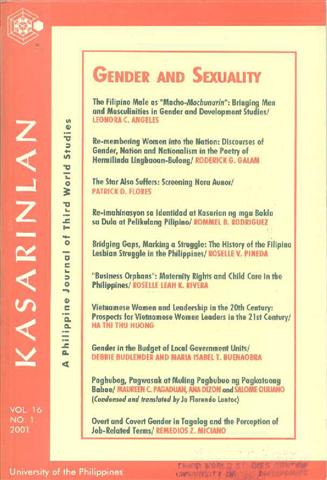“Business Orphans”: Maternity Rights and Child Care in the Philippines
Abstract
The unaddressed problem of national poverty is rearing a generation of Filipino "business orphans," children who do not receive adequate care from parents, particularly mothers who must work to make ends meet. In making ends meet, themothers leave the children in the care of relatives or domestic helpers. Often income does not satisfy basic needs and mothers cannot make up for lost time. Also, some
men perceive child care,like employment and housekeeping, the sole responsibility of the mother. Making parenting nnore difficult are insensitive and often unenforced matemity laws despite the Constitution's proclamations on the women's matemal and economic roles. For example, patemity leave and requiring employers of more than 15 women to establish workplace nurseries with trained personnel are routinely flaunted. Breastfeeding, the healthier and by far the more economic alternative to bottle feeding is not fully endorsed by government, giving infant formula manufacturers II free hand in conditioning mothers into believing the opposite. Consequently, the cost of bottle feeding eats up a substantial portion of the family income. This, along with unsympathetic matemity rights laws makes life very difficult for the business Qrphan and the working mother alike.
Published
2008-09-18
Section
Features
Keywords
Maternity Rights; Motherhood
By submitting a manuscript, the authors agree that the exclusive rights to reproduce and distribute the article have been given to the Third World Studies Center.



